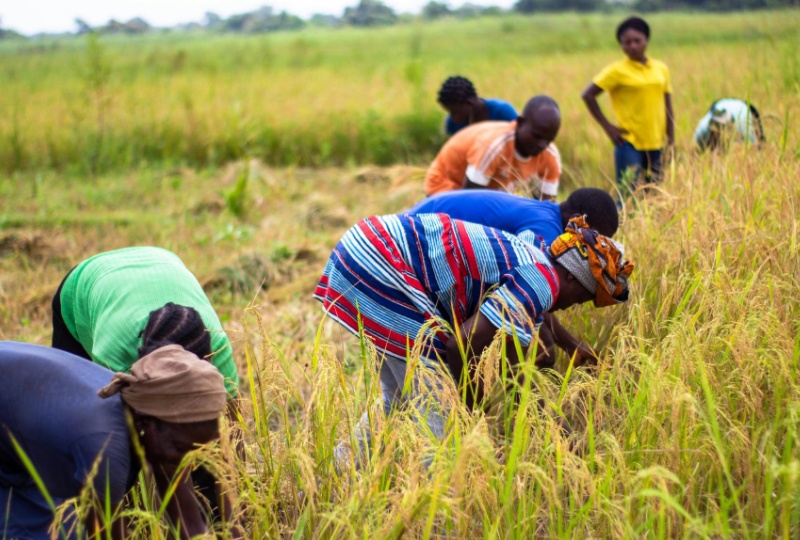In recent years, many African countries have accelerated their agricultural digital transformation, with digital technologies profoundly reshaping their agricultural ecosystems. From production at the field level to the distribution of agricultural products, the application of technologies such as satellite remote sensing, the Internet of Things, and e-commerce platforms has not only provided local farmers with more scientific cultivation methods and smoother sales channels but also injected strong momentum into the sustainable development of agriculture.
Innovation in Agricultural Production Methods
Over the coffee plantations of the Ethiopian Highlands, a drone equipped with a multispectral camera glides slowly overhead. Twice weekly, it transmits data—including crop leaf color and soil moisture levels—to a central decision-making platform, generating precise fertilization and irrigation plans. Pointing to the heat map on the screen, plantation manager Abinet explains that digital management has boosted coffee yields by nearly 20% per acre while reducing pest and disease incidence by 30%. Ethiopia is now actively advancing its national agricultural transformation plan, deploying drone inspections and satellite remote sensing technologies across over 1 million hectares of farmland in key industries like coffee and sorghum.
In the Sahara Desert region of northern Niger, drought once posed the greatest threat to agricultural production. Today, the “Precision Irrigation” mobile app platform is transforming this land. Sensors buried in fields collect real-time soil moisture data. Combined with meteorological satellite data and crop growth models, the system automatically sends irrigation recommendations to farmers’ phones. This “data-driven water conservation” model has been rolled out to over 20 villages, benefiting more than 30,000 farming households.
The transformation driven by digital technology is unfolding across all aspects of African agriculture. In Korhogo, northern Côte d’Ivoire, the startup “African Taste” has created an integrated platform combining “agricultural products + processing + branding.” Through a comprehensive digital tracking system, it enhances product value. Fatima Ba, the company’s director, states, “We are no longer just a cocoa exporter; we aim to become Africa’s chocolate brand.” Burkina Faso’s “Smart Farm” system has also shown initial success, integrating functions like planting schedules, labor allocation, and product sales. Farmers can manage the entire cultivation cycle via mobile phones. In Morocco, the “Agricultural Technology Financing” app developed a farmer credit rating system, enabling online applications for agricultural loans with fast disbursement and low interest rates. Project leader Tarik emphasized, “Digital finance is a crucial pillar of agricultural modernization.”

Addressing challenges in agricultural product distribution
In Africa, poor agricultural product distribution has long been a persistent obstacle to agricultural development. World Bank data reveals that Africa loses 30% to 50% of its crops annually due to inadequate storage and inefficient transportation—equivalent to the livelihood of tens of millions of farming households. Digital technology is now breaking this impasse. On Rwanda’s e-Soko electronic trading platform, farmers can check market prices for over 80 agricultural products daily, with the platform using smart algorithms to match supply and demand. Since its rollout, local coffee bean purchase prices have risen by an average of 15%.
Nigeria’s FarmCrowdy platform uses digital supply chain management to connect farmers precisely with investors and distributors, a model that has helped over 50,000 farmers mitigate market risks. In Johannesburg, South Africa, FarmFresh’s cold chain transport vehicles are equipped with IoT sensors that monitor temperature and humidity in real time. Data syncs to a cloud-based management system, which automatically triggers alerts, reducing spoilage rates from 20% to 5%.
From East African farm markets to South African cold storage warehouses, digital technologies are visibly reshaping Africa’s agricultural distribution systems. Abebe Haile-Gabriel, Assistant Director-General and Regional Representative for Africa at the Food and Agriculture Organization of the United Nations, stated that these innovations not only enhance production and sales efficiency but also establish fairer, more transparent platforms between farmers and markets, injecting new momentum into sustainable agricultural development.










